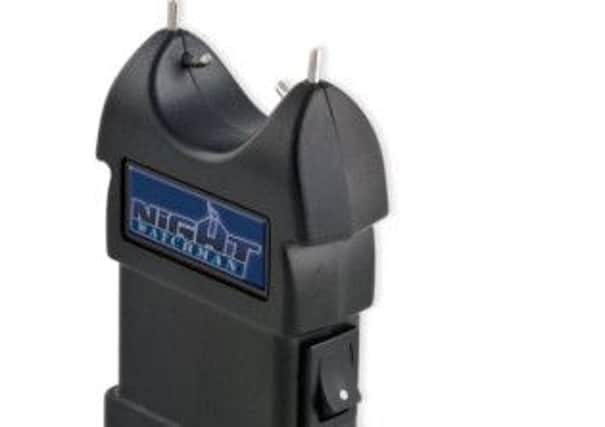Man stunned with £750 fine for ‘tazer-like’ device


Hugh Brolly, 57, of 17 Old City Court, was found in possession of a stun gun on July 19 last year.
The former crane driver claimed he used the device - delivering a pulse of between 12,000 and 18,000 volts - to alleviate chronic back pain.
Advertisement
Hide AdAdvertisement
Hide AdProsecuting counsel told the Court Brolly was previously dealt with for two motoring offences arising out of the same incident.
He said the defendant had been stopped by police at a check point set up after information was received, and the stun gun, a K95, was found in a search of the vehicle.
Defending, Paul Kearney, said the defendant had shown no propensity towards violence or activity that would require the assistance of a weapon or anything of that sort.
“He does in fact suffer from a back problem, which has been with him for a number of years and through whatever research he learned that the injection or generation of an electrical pulse into the seized muscle did in fact create an alleviation.
Advertisement
Hide AdAdvertisement
Hide Ad“It sounds bizarre. He uses this device as an unorthodox means of pain relief for an ongoing, significant back problem,” Mr Kearney said.
Asked what Brolly’s means were, Mr Kearney said his client was in receipt of a range of benefits, including DLA, to a total of £1,100 a month.
On hearing the evidence, the District Judge Barney McElholm, said he did not believe the defendant.
“The forensic report describes it as a high powered stun gun... The report says it would have an estimated output value of 12,000 to 18,000 volts. It is designed to incapacitate a person by temporarily effecting the person’s central nervous system.”
Advertisement
Hide AdAdvertisement
Hide AdHe said there was a theory that a kinetic charge of fairly low level might help, and in this instance he did not believe Mr Brolly.
In addition to the fine Brolly was ordered to pay a court levy of £15 and was given six months to pay.